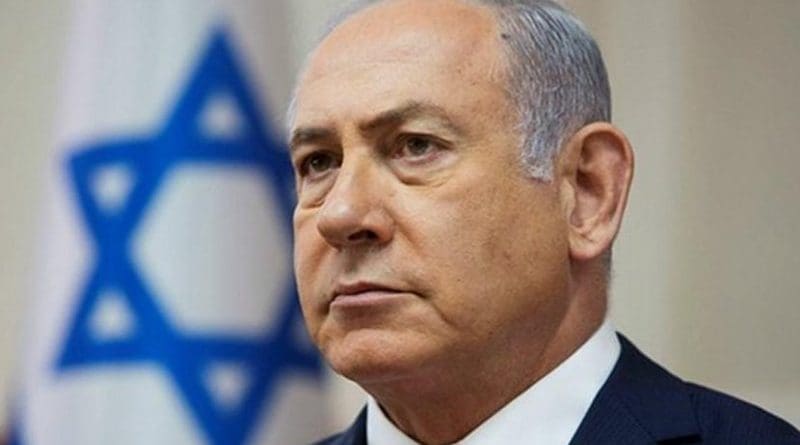An Israeli Arab Reply To Netanyahu’s New Government – OpEd
After five elections that paralyzed Israeli politics for nearly four years, Prime Minister Benjamin Netanyahu has finally returned to power with a government he has long coveted: a majority of ultra religious and far-right lawmakers who share his hard-line views toward Palestinians and his hostility toward Israel’s legal system.
Netanyahu’s new government has pledged to prioritize settlement expansion in the occupied West Bank, extend massive subsidies to his ultra-Orthodox allies and push for sweeping reform of the judicial system that could endanger the country’s democratic institutions. The plans have sparked an unprecedented uproar from across Israeli society, including the military, LGBTQ rights groups, the business community and the Israeli Arab community.
There are many people in the Israeli Arab community who thought that it did not matter if Netanyahu became Prime Minister or not because all the Israeli parties are no good, but the head of the Arab Muslim political party Ra’am slammed the other Arab parties for helping bring down the previous government. The very diverse, very fragile coalition that had toppled Netanyahu collapsed in June, and Netanyahu and his ultranationalist and ultra-Orthodox allies secured a clear parliamentary majority in November’s election.
Ra’am’s head, Mansour Abbas, questioned the purpose of the Hadash-Ta’al alliance and its ‘dogmatic’ approach to politics, arguing it does not help Arabs. “I don’t understand what their purpose is in the Knesset,” Abbas told the Ynet news outlet hours before incoming prime minister Benjamin Netanyahu was due to have his far-right religious coalition approved by the Knesset.
Ra’am, an Islamist party, had joined the previous government, providing it with key seats needed to achieve a majority and using that as leverage to secure commitments for significant state funding for the Arab community.
Elections were called after outgoing prime minister Yair Lapid’s government lost its parliamentary majority in the face of systematic pressure from Likud and opposition parties, including the Hadash and Ta’al parties, then part of the Joint List alliance of Arab parties.
The incoming coalition, led by Netanyahu’s Likud, won 64 out of 120-seat Knesset in the November elections and is set to be the most right-wing government in Israel’s history.
“Because of Tibi and Odeh we missed a historical opportunity,” Abbas said, referring to Ta’al leader MK Ahmad Tibi and Hadash leader MK Ayman Odeh.
Abbas criticized the two other parties, saying “their members don’t believe in my approach. They have a dogmatic approach, they don’t want to change.” Abbas’s Ra’am was the first Arab party to join a governing coalition.
“For a whole year Odeh and Tibi cooperated with the Likud and the Religious Zionism [parties] to bring down the previous government, and what did they gain?” he asked.”Instead of upgrading our status as an Arab society in the State of Israel, we missed a historic opportunity.”
In the past, Ra’am, Hadash, Ta’al and the hardline Arab party Balad ran on a united slate called the Joint List. Ra’am left the alliance ahead of the March 2021 elections and subsequently joined the government, while the rest of the Joint List stayed in the opposition. Balad then split off before the recent November elections, leaving the remaining two parties to form the Hadash-Ta’al alliance.
Ra’am had already decided to run its own slate as it had in the previous election and now the three other Arab parties failed to sign a vote-sharing deal. On election day, Ra’am and Hadash-Ta’al each won five seats while the Balad party failed to clear the minimum threshold for entry into the Knesset.” With a few thousand more votes Balad would have got four seats in the Knesset and stopped Natanyahu from becoming Prime Minister again.
Abbas said that the incoming government, which includes three far-right Ultra-Orthodox religious parties, has raised concern in the Arab community. “There is fear, frustration and mistrust in the government and its policies among the Arab community,” he said. “There is no Arab or Druze representative in the government to reflect things from this community. The government cannot ignore it [the Arab community].”
Most Palestinians have greeted the election of the new government with a shrug. With peace talks already on hold for over a decade, many don’t see how any government can make things worse. But I think that in 2023 the Israeli Arab community will find out if it does, or does not matter if Netanyahu is the Prime Minister. I think they will feel it does make a difference because some Israeli political parties are much better than others.

